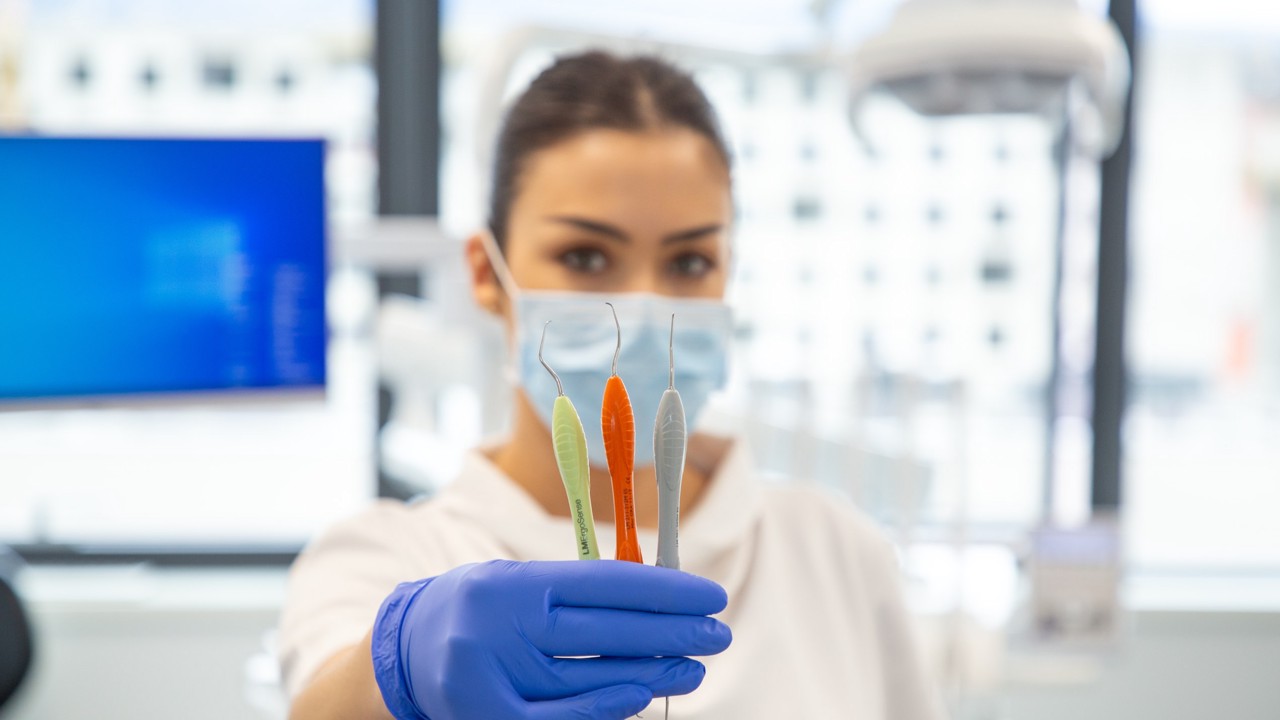Zygoma Implants – a New Chance for a Strong Smile
Periodontology
Periodontology involves taking care of the supporting tissue of the teeth and treating diseases and conditions that affect it.


What is periodontology?
Periodontology is a branch of dental medicine that deals with diseases of the supporting structure of the teeth. Teeth are held in bone by connective fibers called periodontal ligaments; the thin and delicate bone around the tooth is the anchorage of the periodontal ligament. What we see from the outside is called gingiva, i.e. gums. Around the tooth, from the time the tooth erupts until it falls out, there is a battle between bacteria and the body's defense systems. When bacteria succeed in destroying soft tissues and bone around the teeth, periodontitis develops.
Types of periodontitis
Today, we mostly use two diagnoses of periodontal disease: chronic and aggressive periodontitis. As the form of the disease is slightly different in each patient, depending on the number of sites affected, it is described as localized or generalized periodontitis. Depending on the stage of the disease during the examination, periodontitis is divided into initial, moderate and severe.
Periodontitis usually begins as a form of gingivitis.

Frequently asked questions
What are the symptoms of gingivitis?
Some of the periodontitis symptoms are:
- Sensitive, painful and red gums
- Bleeding gums
- Receding gums
- Bad breath
- Difficulties in chewing food
This is exactly why regular check-ups and, if necessary, dental imaging are important.
What is the easiest way to identify periodontitis?
Periodontitis can be identified as frequent bleeding of the gums during cleaning, i.e. brushing the teeth. It is accompanied by bad smell, taste and bad breath. In some progressive cases, teeth loss and receding gums are visible. Inflamed and swollen gums, as well as a change in color from pink to dark red, in some cases even purple, are signs of periodontitis. A clinical examination by a dentist is necessary to diagnose periodontal disease. In such cases, waiting only worsens the disease and makes treatment more difficult. I definitely recommend you, even if you have the slightest doubt, to check the condition of your teeth and not wait for the teeth to start falling out, because then it's too late.
Is gingivitis the same as periodontitis?
Gingivitis is inflammation and bleeding of the gums. If gingivitis is not treated and we do not maintain good oral hygiene, or if we do not remove dental calculus regularly, it develops into periodontal disease. Then the disease no longer affects only the gums, but also the bone and the ligaments that hold the tooth in the bone. After a while without treating the inflammation, bone is destroyed, the tooth becomes loose and may eventually fall out.

How can we keep periodontal disease under control?
“For patients diagnosed with periodontitis, oral hygiene, which must be impeccable, and regular check-ups are very important. Without regular and timely examinations, the disease progresses very quickly, and the result is a high probability of tooth loss. I strongly recommend a check-up and assessment of your condition to determine the stage and the steps to be taken in your treatment to save all your teeth.”
Dr. Igor Kosmina
Periodontology